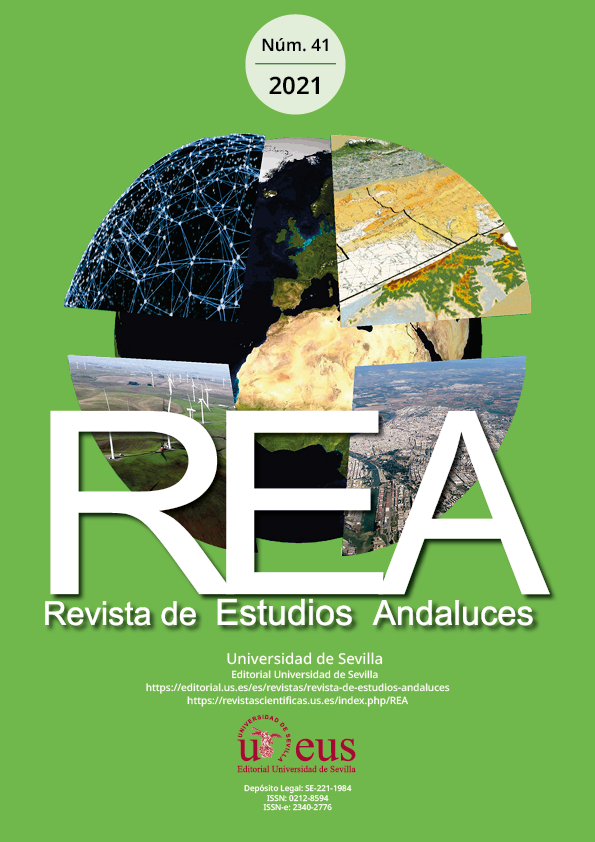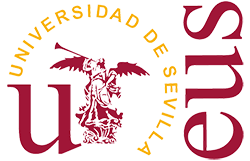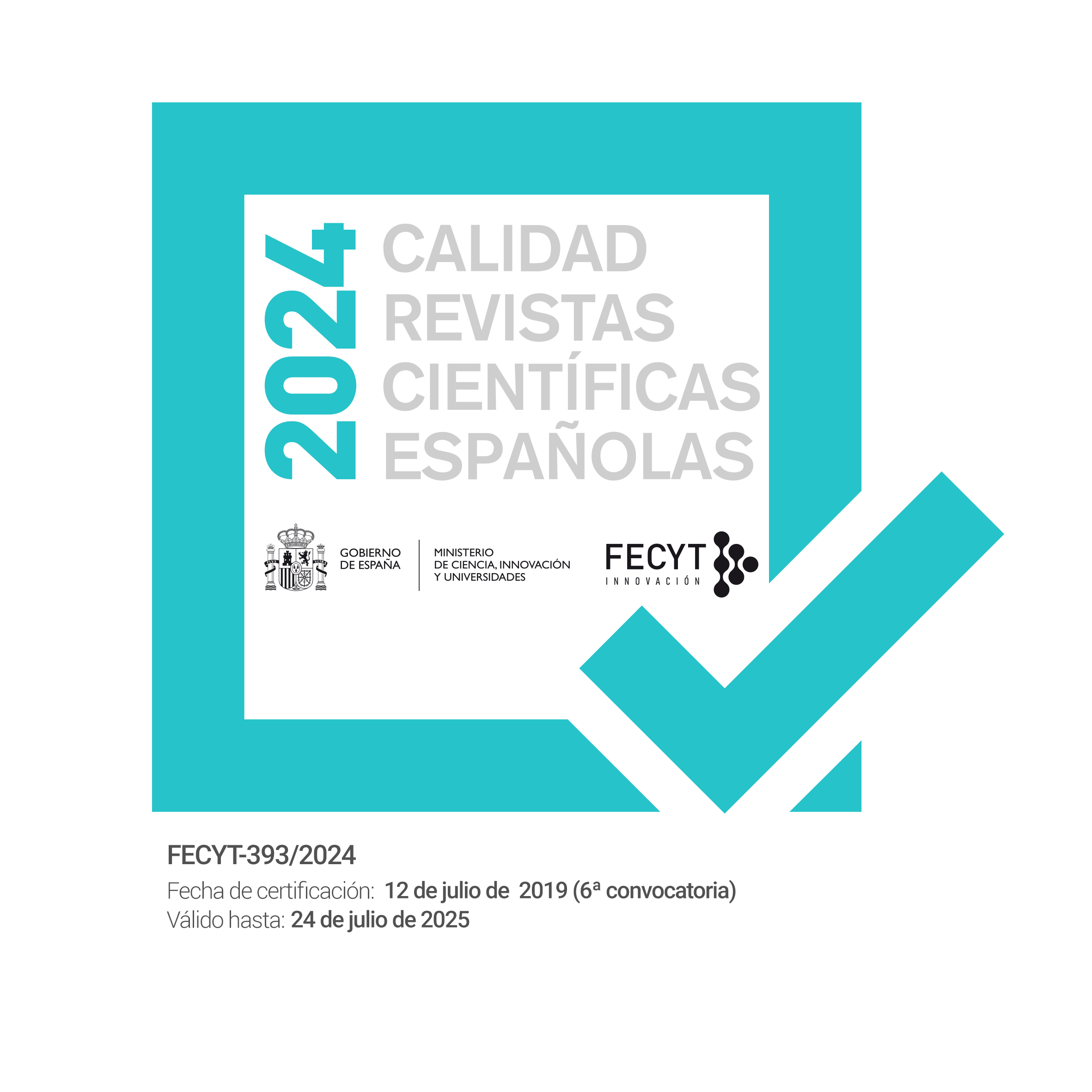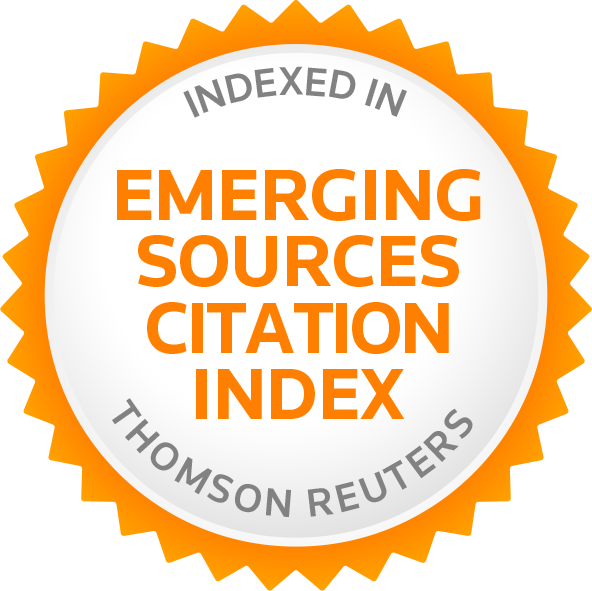Psychometrics of Tourism: A (de)Builder of Quality of Life? Evidence from the Model of Happiness in Dominican Republic
DOI:
https://doi.org/10.12795/rea.2021.i41.11Palabras clave:
Turismo; Calidad de vida; República dominicana; Pequeño estado insular en desarrollo; PLS-SEMResumen
Para los Pequeños Estados Insulares en Desarrollo (PEID), el turismo a menudo se considera un pasaporte para el desarrollo y el bienestar. El fenómeno de la felicidad entre los residentes de los destinos turísticos suele estar ligado al concepto de calidad de vida (CV).
La literatura sobre felicidad sugiere que existe una correlación positiva entre la felicidad y los ingresos de los residentes en SIDS, pero no existe una direccionalidad clara. En esta correlación existe un significativo número de factores ligados al bienestar, como sentimientos y actitudes propias, sentimiento de pertenencia a una comunidad, identificación con el patrimonio cultural y natural, o un gobierno justo que satisfaga las necesidades de los residentes.
Así, el objetivo de esta investigación es revelar el modelo caribeño de felicidad a partir de la relación entre turismo y bienestar en un PEID.
Para probar este modelo hipotético-conceptual, se administró un cuestionario para obtener datos adecuados para medir la calidad de vida en base a un total de cinco constructos y 27 indicadores entre residentes directamente involucrados en la actividad turística. La técnica de Ecuaciones Estructural de Mínimos Cuadrados Parciales (PLS-SEM) fue utilizada para probar este modelo hipotético-conceptual.
Este trabajo aporta evidencia empírica a la literatura sobre la felicidad profundizando en el modelo de bienestar de República Dominicana caracterizado por tres máximas: 1) el modelo dominicano de felicidad individual no se basa en bienes materiales, sino en emociones, por lo que la codicia es considerada una condición de pobreza entre las personas de clase alta; 2) tener más es tener más para compartir y 3) el sector público sigue siendo objeto de desconfianza entre la población dominicana, sin cubrir sus expectativas en cuanto a la administración de justicia o la confiabilidad de los líderes políticos, a pesar de percibir el entorno político como estable.
Descargas
Citas
Andereck, K.L. & Nyaupane, G. P. (2011). Exploring the nature of tourism and quality of life perceptions among residents. Journal of Travel Research, 50(3), 248-260. https://doi.org/10.1177/0047287510362918
Aref, F. (2011). The effects of tourism on quality of life: A Case Study of Shiraz, Iran. Life Science Journal, 8(2), 26–30.
Atkinson, S., Bagnall, A.M., Corcoran, R., South, J. & Curtis, S. (2020). Being well together: individual subjective and community wellbeing. Journal of Happiness Studies, 21(5), 1903-1921. https://doi.org/10.1007/s10902-019-00146-2
Atkinson, S. & Joyce, K.E. (2011). The place and practices of well-being in local governance. Environment and Planning C: Government and Policy, 29(1), 133-148. https://doi.org/10.1068/c09200
Basole, A. (2005). The economics of ahimsa: Gandhi, Kumarappa, and the non-modern challenge to economics.
Bedran-Martins, A.M., Lemos, M.C. & Philippi, A. (2018). Relationship between subjective well-being and material quality of life in face of climate vulnerability in NE Brazil. Climatic Change, 147(1-2), 283-297. https://doi.org/10.1007/s10584-017-2105-y
Benitez, J., Henseler, J., Castillo, A. & Schuberth, F. (2020). How to perform and report an impactful analysis using partial least squares: guidelines for confirmatory and explanatory IS research. Information & Management, 57(2), 103168. https://doi.org/10.1016/j.im.2019.05.003
Bennett, N.J. & Dearden, P. (2014). Why local people do not support conservation: Community perceptions of marine protected area livelihood impacts, governance and management in Thailand. Marine policy, (44), 107-116. https://doi.org/10.1016/j.marpol.2013.08.017
Buitrago, E.M., Caraballo, M.A. & Roldán J.L. (2018). Do Tolerant Societies Demand Better Institutions? Social Indicators Research, 1-24.
Buzinde, C.N., Kalavar, J.M. & Melubo, K. (2014). Tourism and community well-being: The case of the Maasai in Tanzania. Annals of Tourism Research, 44, 20-35. https://doi.org/10.1016/j.annals.2013.08.010
Carneiro, M.J., Eusébio, C. & Caldeira, A. (2018). The influence of social contact in residents’ perceptions of the tourism impact on their quality of life: A structural equation model. Journal of Quality Assurance in Hospitality & Tourism, 19(1), 1-30. https://doi.org/10.1080/1528008X.2017.1314798
Chan, C., Armitage, D., Alexander, S.M. & Campbell, D. (2019). Examining linkages between ecosystem services and social wellbeing to improve governance for coastal conservation in Jamaica. Ecosystem Services, (39), 100997. https://doi.org/10.1016/j.ecoser.2019.100997
Cheah, J.H., Memon, M.A., Chuah, F., Ting, H. & Ramayah, T. (2018). Assessing reflective models in marketing research: A comparison between pls and plsc estimates. International Journal of Business and Society, 19(1), 139-160.
Chin, W.W. (1998). The partial least squares approach for structural equation modeling. In G. Marcoulides (ed.), Modern methods for business research (pp. 295-336). Lawrence Erlbaum Associates.
Chin, W.W. (2010). How to write up and report PLS analyses. In Handbook of partial least squares (pp. 655-690). Springer. https://doi.org/10.1007/978-3-540-32827-8_29
Cho, E.Y.N. (2018). Links between poverty and children’s subjective wellbeing: Examining the mediating and moderating role of relationships. Child Indicators Research, 11(2), 585-607. https://doi.org/10.1007/s12187-017-9453-z
Cloutier, S., Ehlenz, M.M. & Afinowich, R. (2019). Cultivating Community Wellbeing: Guiding Principles for Research and Practice. International Journal of Community Well-Being, 2(3-4), 277-299. https://doi.org/10.1007/s42413-019-00033-x
Cohen, E., Ware, L.J., Prioreschi, A., Draper, C., Bosire, E., Lye, S. J. & Norris, S. A. (2020). Material and Relational Difficulties: The Impact of the Household Environment on the Emotional Well-Being of Young Black Women Living in Soweto, South Africa. Journal of Family Issues, 41(8), 1307-1332. https://doi.org/10.1177/0192513X19887524
Croes, R., Rivera, M., Pizam, A., Olson, E., Lee, S. & Zhong, Y. (2011). Winning the Future: Strategic Plan for the Development of Tourism. Dick Pope Sr. Institute Publications, (34).
Croes, R., Ridderstaat, J. & van Niekerk, M. (2018). Connecting quality of life, tourism specialization, and economic growth in small island destinations: The case of Malta. Tourism Management, (65), 212-223. https://doi.org/10.1016/j.tourman.2017.10.010
Crooke, E. (2010). The politics of community heritage: motivations, authority and control. International Journal of Heritage Studies, 16(1-2), 16-29. https://doi.org/10.1080/13527250903441705
Di Tella, R. & MacCulloch, R. (2008). Gross national happiness as an answer to the Easterlin Paradox? Journal of Development Economics, 86(1), 22-42. https://doi.org/10.1016/j.jdeveco.2007.06.008
Dominican Central Bank (2018). Importancia y evolución del turismo en la República Dominicana, 2012-2017. Santo Domingo: República Dominicana.
Dwyer, L. (2020). Tourism development and sustainable well-being: A Beyond GDP perspective. Journal of Sustainable Tourism, 1-18. https://doi.org/10.1080/09669582.2020.1825457
Easterlin, R. A. (1995). Will raising the incomes of all increase the happiness of all? Journal of Economic Behavior & Organization, 27(1), 35-47. https://doi.org/10.1016/0167-2681(95)00003-B
Frijters, P., Clark, A.E., Krekel, C. & Layard, R. (2020). A happy choice: wellbeing as the goal of government. Behavioural Public Policy, 4(2), 126-165. https://doi.org/10.1017/bpp.2019.39
Geisser, S. (1975). The predictive sample reuse method with applications. Journal of the American Statistical Association, 70(350), 320-328. https://doi.org/10.1080/01621459.1975.10479865
Gillam, C. & Charles, A. (2019). Community wellbeing: The impacts of inequality, racism and environment on a Brazilian coastal slum. World Development Perspectives, 13, 18-24. https://doi.org/10.1016/j.wdp.2019.02.006
Gollan, N., Voyer, M., Jordan, A. & Barclay, K. (2019). Maximising community wellbeing: Assessing the threats to the benefits communities derive from the marine estate. Ocean & Coastal Management, (168), 12-21. https://doi.org/10.1016/j.ocecoaman.2018.10.020
Gross-Manos, D. (2017). Material well-being and social exclusion association with children’s subjective Well-being: Cross-national analysis of 14 countries. Children and Youth Services Review, (80), 116-128. https://doi.org/10.1016/j.childyouth.2017.06.048
Hair, J. F., Ringle, C. M. & Sarstedt, M. (2011). PLS-SEM: Indeed a silver bullet. Journal of Marketing theory and Practice, 19(2), 139-152. https://doi.org/10.2753/MTP1069-6679190202
Hair Jr, J.F., Hult, G.T.M., Ringle, C. & Sarstedt, M. (2016). A primer on partial least squares structural equation modeling (PLS-SEM). Sage publications. https://doi.org/10.15358/9783800653614
Hair Jr, J.F., Matthews, L.M., Matthews, R.L. & Sarstedt, M. (2017). PLS-SEM or CB-SEM: updated guidelines on which method to use. International Journal of Multivariate Data Analysis, 1(2), 107-123. https://doi.org/10.1504/IJMDA.2017.087624
Hayduk, L.A. & Littvay, L. (2012). Should researchers use single indicators, best indicators, or multiple indicators in structural equation models? BMC medical research methodology, 12(1), 159. https://doi.org/10.1186/1471-2288-12-159
Holmes, M. & McKenzie, J. (2019). Relational happiness through recognition and redistribution: Emotion and inequality. European Journal of Social Theory, 22(4), 439-457. https://doi.org/10.1177/1368431018799257
Kafashpor, A., Ghasempour Ganji, S. F., Sadeghian, S. & Johnson, L. W. (2018). Perception of tourism development and subjective happiness of residents in Mashhad, Iran. Asia Pacific Journal of Tourism Research, 23(6), 521-531. https://doi.org/10.1080/10941665.2018.1476392
Kahneman, D. & Deaton, A. (2010). High income improves evaluation of life but not emotional well-being. Proceedings of the national academy of sciences, 107(38), 16489-16493. https://doi.org/10.1073/pnas.1011492107
Khoshkam, M., Marzuki, A. & Al-Mulali, U. (2016). Socio-demographic effects on Anzali wetland tourism development. Tourism Management, 54, 96-106. https://doi.org/10.1016/j.tourman.2015.10.012
Kim, P.S. (2008). A daunting task in Asia: The move for transparency and accountability in the Asian public sector. Public Management Review, 10(4), 527-537. https://doi.org/10.1080/14719030802263962
Kim, K., Uysal, M. & Sirgy, M.J. (2013). How does tourism in a community impact the quality of life of community residents? Tourism management, 36, 527-540. https://doi.org/10.1016/j.tourman.2012.09.005
Landorf, C. (2009). Managing for sustainable tourism: a review of six cultural World Heritage Sites. Journal of Sustainable Tourism, 17(1), 53-70. https://doi.org/10.1080/09669580802159719
Lee, S.J. & Kim, Y. (2016). Structure of well-being: An exploratory study of the distinction between individual well-being and community well-being and the importance of intersubjective community well-being. In Y. Kee, S.J. Lee & R. Phillips (eds.), Social factors and community wellbeing (pp. 13–37). Springer. https://doi.org/10.1007/978-3-319-29942-6_2
Li, S. & Wu, J. (2010) Why some countries thrive despite corruption: The role of trust in the corruption– efficiency relationship. Review of International Political Economy, 17(1), 129-154. https://doi.org/10.1080/09692290802577446
Mathew, P.V. & Sreejesh, S. (2017). Impact of responsible tourism on destination sustainability and quality of life of community in tourism destinations. Journal of Hospitality and Tourism Management, (31), 83-89. https://doi.org/10.1016/j.jhtm.2016.10.001
Melgar, N., Rossi, M. & Smith, T.W. (2010). The perception of corruption. International Journal of Public Opinion Research, 22(1), 120-131. https://doi.org/10.1093/ijpor/edp058
Millán-Puelles, A. (1962). Persona humana y justicia social. Colección Estudios.
Ministry of Labor of the Dominican Republic (20120, 5 de junio) Datos básicos sobre el costo de la vida en República Dominicana. http://www.empleocard.info/republica-dominicana/costo-de-la-vida
Naidoo, P. & Sharpley, R. (2016). Local perceptions of the relative contributions of enclave tourism and agritourism to community well-being: The case of Mauritius. Journal of Destination Marketing & Management, 5(1), 16-25. https://doi.org/10.1016/j.jdmm.2015.11.002
Nawijn, J. & Mitas, O. (2012). Resident attitudes to tourism and their effect on subjective well-being: The case of Palma de Mallorca. Journal of Travel Research, 51(5), 531-541. https://doi.org/10.1177/0047287511426482
Oficina Nacional Estadística (ONE) (2020, 5th March). Tourism data. https://www.one.gob.do/economicas/turismo.
Palmer, C. (1999). Tourism and the symbols of identity. Tourism management, 20(3), 313-321. https://doi.org/10.1016/S0261-5177(98)00120-4
Papathanassis, A., Katsios, S. & Dinu, N.R. (eds.) (2018). Yellow Tourism: Crime and Corruption in the Holiday Sector. Springer. https://doi.org/10.1007/978-3-319-94664-1
Phillips, T., Taylor, J., Narain, E. & Chandler, P. (2021) Selling Authentic Happiness: Indigenous wellbeing and romanticised inequality in tourism advertising. Annals of Tourism Research, (87), 103115. https://doi.org/10.1016/j.annals.2020.103115
Power, A. & Smyth, K. (2016). Heritage, health and place: The legacies of local community-based heritage conservation on social wellbeing. Health & Place, (39), 160-167. https://doi.org/10.1016/j.healthplace.2016.04.005
Pratt, S., McCabe, S. & Movono, A. (2016). Gross happiness of a’tourism’village in Fiji. Journal of Destination Marketing & Management, 5(1), 26-35. https://doi.org/10.1016/j.jdmm.2015.11.001
Ram, Y. (2018). Hostility or hospitality? A review on violence, bullying and sexual harassment in the tourism and hospitality industry. Current Issues in Tourism, 21(7), 760-774. https://doi.org/10.1080/13683500.2015.1064364
Rao, N. D. & Min, J. (2018). Decent living standards: material prerequisites for human wellbeing. Social indicators research, 138(1), 225-244. https://doi.org/10.1007/s11205-017-1650-0
Rasoolimanesh, S.M., Ringle, C.M., Jaafar, M. & Ramayah, T. (2017). Urban vs. rural destinations: Residents’ perceptions, community participation and support for tourism development. Tourism Management, 60, 147-158. https://doi.org/10.1016/j.tourman.2016.11.019
Ridderstaat, J., Croes, R. & Nijkamp, P. (2016). The tourism development–quality of life nexus in a small island destination. Journal of Travel Research, 55(1), 79-94. https://doi.org/10.1177/0047287514532372
Rigdon, E.E. (2012). Rethinking partial least squares path modeling: In praise of simple methods. Long Range Planning, 45(5-6), 341-358. https://doi.org/10.1016/j.lrp.2012.09.010
Ringle, C.M., Sarstedt, M., Schlittgen, R. & Taylor, C.R. (2013). PLS path modeling and evolutionary segmentation. Journal of Business Research, 66(9), 1318-1324. https://doi.org/10.1016/j.jbusres.2012.02.031
Rivera, M., Croes, R. & Lee, S.H. (2016). Tourism development and happiness: A residents’ perspective. Journal of Destination Marketing & Management, 5(1), 5-15. https://doi.org/10.1016/j.jdmm.2015.04.002
Sarriera, J.C., Casas, F., Bedin, L., Abs, D., Strelhow, M.R., Gross-Manos, D. & Giger, J. (2015). Material resources and children’s subjective well-being in eight countries. Child Indicators Research, 8(1), 199-209. https://doi.org/10.1007/s12187-014-9284-0
Sarstedt, M., Bengart, P., Shaltoni, A.M. & Lehmann, S. (2018). The use of sampling methods in advertising research: A gap between theory and practice. International Journal of Advertising, 37(4), 650-663. https://doi.org/10.1080/02650487.2017.1348329
Sharpley, R. & Naidoo, P. (2010). Tourism and poverty reduction: The case of Mauritius. Tourism and Hospitality Planning & Development, 7(2), 145-162. https://doi.org/10.1080/14790531003737169
Siddiqi, M. (2004). Shalish and the Quest for Gender Justice: An Assessment of Strategic Interventions in Bangladesh, Final Report, Dhaka: Research Initiatives Bangladesh.
Smith, M. & Reisinger, Y. (2013). Transforming quality of life through wellness tourism. Transformational tourism: Tourist perspectives, 55-67. https://doi.org/10.1079/9781780642093.0055
Stone, M. (1974). Cross-validatory choice and assessment of statistical predictions. Journal of the Royal Statistical Society: Series B (Methodological), 36(2), 111-133. https://doi.org/10.1111/j.2517-6161.1974.tb00994.x
Su, M.M., Wall, G., & Xu, K. (2016). Tourism-induced livelihood changes at mount Sanqingshan world heritage site, China. Environmental Management, 57(5), 1024-1040. https://doi.org/10.1007/s00267-016-0672-8
Surugiu, C. & Surugiu, M.R. (2013). Is the tourism sector supportive of economic growth? Empirical evidence on Romanian tourism. Tourism Economics, 19(1), 115-132. https://doi.org/10.5367/te.2013.0196
Tranter, B., Lester, L. & McGaurr, L. (2017). Indigenous Engagement: Three Case Studies. In Leadership and the Construction of Environmental Concern (pp. 117-150). Palgrave Macmillan. https://doi.org/10.1057/978-1-137-56584-6
UNWTO (2019). World Tourism Highlights 2018 Edition. Organización Mundial de Turismo.
Uysal, M. & Modica, P. (2016). Island tourism: challenges and future research directions. Sustainable Island Tourism: Competitiveness and Quality of Life, 173-188. https://doi.org/10.1079/9781780645421.0173
Uysal, M., Sirgy, M.J., Woo, E. & Kim, H.L. (2016). Quality of life (QOL) and well-being research in tourism. Tourism Management, (53), 244-261. https://doi.org/10.1016/j.tourman.2015.07.013
Vogt, C., Jordan, E., Grewe, N. & Kruger, L. (2016). Collaborative tourism planning and subjective well-being in a small island destination. Journal of Destination Marketing & Management, 5(1), 36-43. https://doi.org/10.1016/j.jdmm.2015.11.008
Walton, G.W. (2013). Is all corruption dysfunctional? Perceptions of corruption and its consequences in Papua New Guinea. Public Administration and Development, 33(3), 175-190. https://doi.org/10.1002/pad.1636
White, S.C. (2010). Analysing wellbeing: A framework for development practice. Development in practice, 20(2), 158-172. https://doi.org/10.1080/09614520903564199
World Health Organisation (2020, 4th December). Measuring Quality of Life. https://www.who.int/healthinfo/survey/whoqol-qualityoflife/en/
Descargas
Publicado
Cómo citar
Número
Sección
Licencia
Derechos de autor 2021 Revista de Estudios Andaluces

Esta obra está bajo una licencia internacional Creative Commons Atribución-NoComercial-SinDerivadas 4.0.
La edición electrónica de la Revista de Estudios Andaluces se ofrece en acceso abierto desde el número 28 publicado en 2011 hasta la actualidad. Las ediciones impresa y electrónica de esta Revista son editadas por la Editorial de la Universidad de Sevilla, siendo necesario citar la procedencia en cualquier reproducción parcial o total.
La Revista de Estudios Andaluces no cobra tasas por el envío de trabajos, ni tampoco cuotas por la publicación de sus artículos. La Revista es gratuita desde el momento de la publicación de cada número y sus contenidos se distribuyen con la licencia “CreativeCommons Atribución-NoComercial-SinDerivar 4.0 Internacional” , que permite al usuario de la Revista de Estudios Andaluces criterios que cumplen con la definición de open access de la Declaración de Budapest en favor del acceso abierto. Puede consultar desde aquí la versión informativa y el texto legal de la licencia. Esta circunstancia ha de hacerse constar expresamente de esta forma cuando sea necesario.







